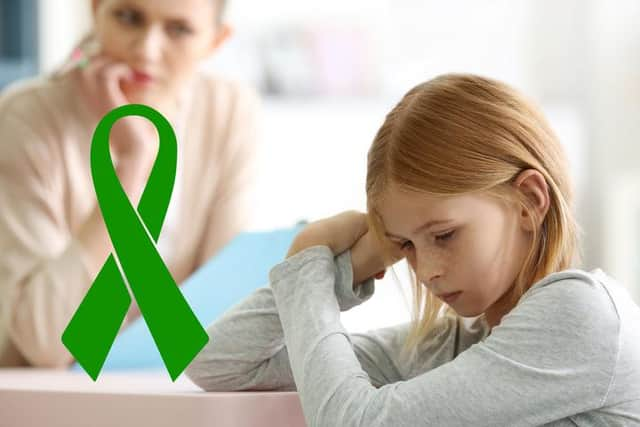Covid: psychologists’ tips on how parents can support their children’s mental health as lockdown eases
and live on Freeview channel 276
The Covid pandemic has taken its toll on the mental health of people across the UK, with lockdown restrictions limiting social contact and changing the way people communicate with each other on a daily basis.
However, lockdown hasn’t just taken its toll on adults - children have missed out on school, seeing friends and family, and important events, like birthday parties, exams and social activities.
Advertisement
Hide AdAdvertisement
Hide AdBut, as the UK begins to emerge from lockdown and ease back to normality, will this have a further negative impact on the mental health of children?


‘Children’s wellbeing may have been disproportionately affected by the pandemic’
The Covid pandemic and resulting lockdowns have impacted people’s lives and mental health in different ways, but psychologist Dr Maryhan Baker says it has “significantly impacted the lives of young people.”
Vicki Nash, Head of Policy and Campaigns at mental health charity Mind, also notes that research carried out by the mental health charity “indicates that the wellbeing of children and young people may have been disproportionately affected by the pandemic.”
A Mind survey carried out during the initial lockdown found that three in four (75 per cent) of young people aged 13-24 with an existing mental health problem reported worse mental health, compared to nearly two in three (60 per cent) adults.
Advertisement
Hide AdAdvertisement
Hide AdDr Kalanit Ben-Ari, founder of parenting community GetTheVillage, says “there have been huge changes” in children’s lives and routines during the pandemic, with children experiencing “many changes all at once.”
However, with the pandemic and lockdown restrictions having significant implications on the lives of children and young adults, it’s possible that this could have further mental health consequences after social distancing measures are lifted.
How will lockdown easing impact children’s mental health?
The mental health of children could be further negatively impacted as the nation once again transitions out of lockdown, with children having to navigate seeing friends again, and a return to in-person activities and learning.
Stevie Goulding, Parents Helpline Co-Manager at YoungMinds, said: “In a recent survey we carried out with young people with mental health needs, 67 per cent told us that they believed the pandemic would have a long term, negative impact on their mental health.”
Advertisement
Hide AdAdvertisement
Hide AdJennifer Wyman, Director & Parenting Lead at Bridge the Gap, a company dedicated to improving the mental health of children, parents and teachers says although “it’s hard to predict what might impact children coming out of lockdown,” with some children feeling excited while others are anxious, “there is potential in all areas for problems.”
This includes returning to school and seeing friends again, with the potential for social anxiety, body image issues, concerns over germs, separation anxiety and struggling to adapt to a more structured learning environment again.
Dr. Amanda Gummer, psychologist and founder of The Good Play Guide, says that there is “likely to be a mis-match between expectations and reality when it comes to friendships” as children will have matured and may find it “difficult to pick up friendships where they left off.”
How to spot the signs a child is struggling
You may begin to notice that your child is not their usual self and is choosing not to partake in activities that usually make them happy, explains Dr Ben-Ari.
Advertisement
Hide AdAdvertisement
Hide AdShe says: “If your child is becoming more withdrawn and not joining in with family activities, skipping meals, finding it difficult to go to sleep or wake up, is showing regression behaviour (e.g. wetting the bed) these are all signs that your child is struggling.”
However, Ms Wyman says that as lockdown restrictions have not yet been fully lifted we can only “predict what children’s responses might be.”
It’s therefore important that parents or guardians don’t project their worries onto children, instead supporting them and “responding to behaviours and worries that show up as they arise.”
This could be done by making time together each day - such as with a walk outside, a game, or a shared activity - which will “give you both an opportunity to talk about how you’re adjusting back to normal life,” explains Dr Ben Ari.
‘Plan a re-introduction to the world together’
Advertisement
Hide AdAdvertisement
Hide AdMichael Padraig Acton, a psychological therapist, counsellor and life coach, says that as lockdown eases, “open and honest communication” is needed between parents and their children.
He adds: “My advice is to have a discussion and plan a re-introduction to the world together.”
Parents can try talking to their children about what has happened over the past year, what they have learnt and what they want to do as they come out of lockdown, discussing with their children the differences they are all likely to experience, explains Mr Acton.
This is reiterated by Dr Deborah Lee, who says children “need clear and accurate, jargon-free, information about Covid and the future of the pandemic.”
Advertisement
Hide AdAdvertisement
Hide AdHowever, Mr Goulding says that parents should keep in mind that they “do not need to know all the answers,” but that just talking things through can help children “feel calmer.”
If you need further advice or information about how to support your child with their mental health as lockdown lifts, you can also contact your GP.